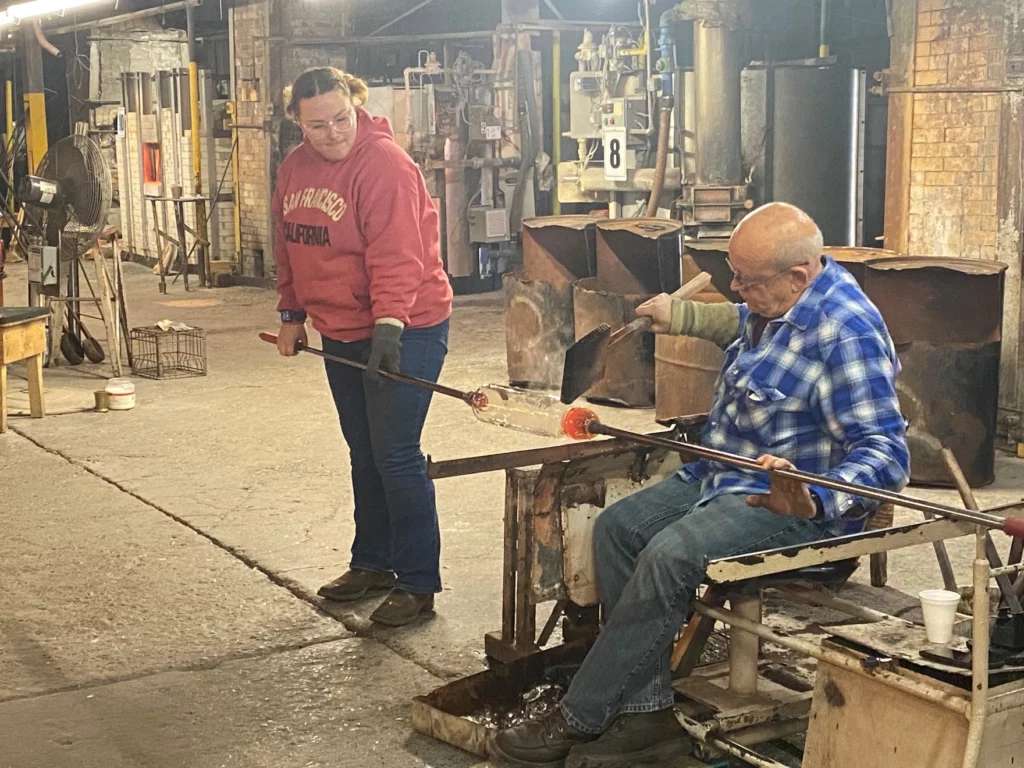Apprenticeships go back to medieval times. Think of the butcher, the baker and the candlestick maker. Why was Benjamin Franklin such a great writer, publisher and thinker? He began as a print shop apprentice at age 10. More than half of all European high school students are in active apprenticeships.
What’s old is new again and the growing vocational trend seems well fitted to the Mountain State workforce.
Dave Lavender, with the West Virginia Department of Economic Development in workforce training and apprenticeship, explained that these positions offer paid, short term, work-based experiences.
“An apprenticeship is at least a part time job, 20 hours a week or more as designated by the Department of Labor Office of Apprenticeships,” Lavender said. “It’s a paid job. It’s meant to be a permanent job on ramp to a career.”
Lavender said West Virginia ranks fifth per capita in the United States for apprenticeships. He said the state has taken the time-tested model used by plumbers, pipe fitters, welders and others in the skilled trades. It’s a model now being applied to a multitude of career paths, from meat cutting to the world of high tech.
“We have over 100 apprentices at IBM at the rocket center,” Lavender said. “We have apprentices in cybersecurity, the solar panel and wind turbine industry and home health aides. These are great paying jobs. Kids can come right out of high school and make a great living wage.”
As one of the state’s last true glass factories, Blenko Glass Production Manager David Wertz was concerned about the century-old Milton institution surviving within a declining national industry.
Blenko recently began the state’s first registered Glass Worker Apprenticeship program, advancing its thriving apprenticeship commitment, with young people learning a historic trade.
“We wouldn’t have a future without it, we would simply be snuffed out of the industry,” Wertz said. “It means that we have more options and more availability to help our junior class workers learn and gain more opportunities by bringing in outside training.”
Wertz said it’s not just improving opportunities for Blenko workers, but for the company, and the state as well.
“It means that we’re going to be able to last another 100 years,” Wertz said. “We’re not only making better benefits for our current folks, but we’re creating more careers and more jobs down the road as well.”
Taylor Brumfield, a Glenville State University Fine Arts graduate, said her Blenko Glass apprenticeship helps create a brighter future for her and the state.
“If you lose this art form, then who else is going to continue it to keep it within our Appalachian culture?” Brumfield said. “I’d prefer to work my way up to being a glass piece finisher. I think I’m a quarter of the way to that, but it’s going to take at least five years, that’s a short time.”
Lavender said apprenticeships work well here because of a strong West Virginia work ethic and the inclusionary nature of the career program.
“Diversity and inclusion is baked in. Everyone has a seat at the table,” Lavender said. “You don’t have to have any other prior experience. You can come on board and we will pay you while we’re teaching you how to do a job.“
For information on the more than 1400 apprenticeships available nationwide, go to the Department of Labor Office of Apprenticeship website.




















